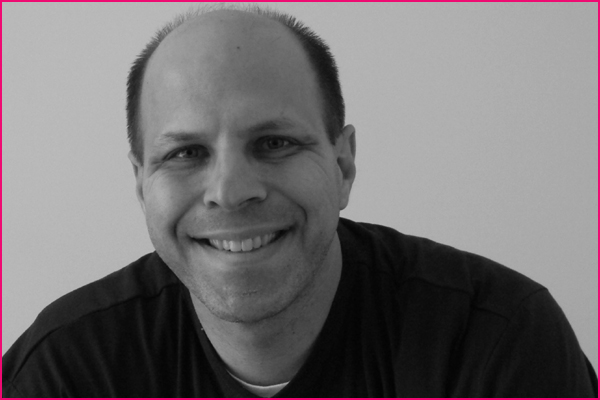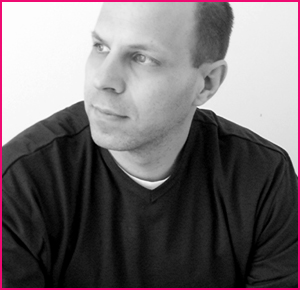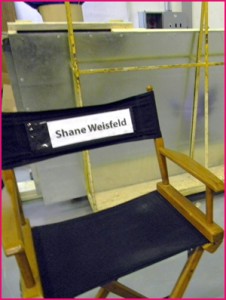
Shane Weisfeld
Shane Weisfeld is a screenwriter in Toronto. “Freezer”, starring Dylan McDermott, Peter Facinelli and Yuliya Snigir, and directed by Mikael Salomon, was released throughout North America in January and has since been released in several other countries. His favorite film is The Exorcist and his biggest screenwriting influences include John Sayles, David Mamet, Robert Towne, Steve Zaillian, Scott Frank, Billy Ray, Steven Knight, Peter Morgan and Ronald Harwood.
1. Growing up, what movies or stories inspired you?
I was born in ’74, so action, horror and comedy movies of the 80s inspired me the most. I grew up with two older brothers and got a chance to see many films of the 1970s when I was young. I consider the 70s to be the best decade for studio films.
2. When did you first realize that being a screenwriter was your lifelong passion?
It wasn’t a realization ? I’ve been a writer my whole life. I’ve never aspired to be a writer ? it’s what I am. My love of film, the creative and business aspect of it, combined with my natural talent for writing, is what made me want to pursue it as a career, and I made that choice in my last year of high school.
3. You were a Film/Screenwriting major (at York University in Toronto). After graduating, what were your first jobs in the industry?
I did some work for MGM in publicity & promotions, wrote for a local film magazine, assisted on some local film sets. Right out of school though I started working as a media monitor full-time and did that for almost 10 years.
 4. You have faced many rejections in the past. What do you do to stay motivated?
4. You have faced many rejections in the past. What do you do to stay motivated?
I get this question asked a lot. For me, it’s not necessarily staying motivated. The fact that I was born to do this and it will happen as long as I continue to work hard, hustle and persevere ? that in itself is the motivation. I knew from the start rejection would be a big part of it ? but rejection is a test, and I’m always writing that exam and making sure I pass it. Coming from the world of hip cop and being a former competitive bodybuilder, I was already used to rejection when I started the film industry pursuit.
5. Is writing just one aspect of becoming a successful screenwriter? Do you spend a lot of time doing sales pitches, promoting yourself, networking etc.?
Writing is only half the battle. The other half is the business aspect of it. Many times you hear people say “write a great script and we’ll find you.” Really? So I can just sit on my ass and write and it’s all good? I can honestly say the only reason why I’ve gotten to where I am right now and what will continue to propel me in the future is continuing to write, promote myself and network. They always go hand in hand. However, writing is always number one and the time I spend most on, but it wasn’t always that way, and that’s a big mistake I made in the past.
6. “Freezer” was your first official production credit. How was the script born? What was the process?
I didn’t produce it, but it’s my first feature credit as a screenwriter. It’s also the first script I wrote with someone else, and at the time we were both frustrated with the lack of progress in our individual quests and wanted to do something that had never been done before ? something that could attract all the elements needed to get a movie made. We wrote the first draft in only three weeks, but first making sure something like that was not currently being developed or produced somewhere else.
7. “Freezer” also has a relatively small cast, budget and one location. How challenging was it to keep an interesting story line within these constraints?
It was quite challenging, but that’s how I knew we were on to something. I like testing myself, going outside of my comfort zone, and thinking of the most original and interesting way to do something. In the first draft, it wasn’t like that, it was only during the rewrite process that the story actually started to unfold and became more challenging as we added to it.
8. Is the finished movie very similar to the script or did you have to change a lot during production?
The finished movie is almost a completely different story than the first draft, but that was a two-and-a-half-year period from when it was first written to when it went before the cameras. There were some last minute changes and polishes just before it started shooting, but it pretty much stuck to the later versions of the script. To be honest, the first draft was more concept than story ? and thankfully through the rewrites it took on a life of its own in terms of story, character, dialogue and conflict.
9. Have you any idea why “Freezer” was picked up and other scripts were not? Do you think it was purely the concept or were there other factors involved?
“Freezer” is really the first script where not only did I do the most rewriting and spent the most time and detail on, but really concentrated on making it appealing for an agent or manager, and also a director, producer, financier and lead actor. Concept was a big factor in this case, but that’s only the foundation of the script as a piece of real estate; you’ve got to be the architect, but also the construction manager, mason, painter, interior designer and plumber.
 10. How does it feel to finally have your work produced?
10. How does it feel to finally have your work produced?
It’s an amazing feeling, knowing all the time, work and sacrifice over the years I put into this game, coupled with all the rejection, frustration and uncertainty as well. I’ve kept every single rejection letter, which has grown into a pile more than a foot thick, and when the movie got the full green light and distribution, I looked at that rejection pile and knew it was all worth it.
11. If you could relive the experience, what one thing would you change?
I would rewrite so much more. There were a lot of scripts I wrote that I knew deep down I could make better. It’s probably the most common mistake among aspiring writers, and I made that mistake through many scripts. That’s partly why I’m at this point and have gotten this far – because of all the mistakes I’ve made.
12. Tell us about some of the people you collaborated with on “Freezer”, I know Andrey (Ivchenko), I met Andrey and would you tell me about how you think about Andrey. I did his interview in here on our site, too.
I collaborated the most with the producers, because it was a long rewrite process with notes, feedback and suggestions, way before casting started. I also had the opportunity to be on set for a while and met some great people, including the actors, director and crew. Andrey was perfect for it and he did an amazing job, along with partner in crime Milan Malisic. Everyone was great. Just goes to show how important casting is and getting the right person to fit with the character.
13. Can you talk a little about the process of “pitching” to the studios and how do you approach this?
I haven’t personally dealt with the studios yet. “Freezer” was made independently. Early on a lot of people were interested in “Freezer” and we had talks with some studio-based producers, people with first-look deals at studios ? and the film was never meant for that, which is something we realized along the way. The process of pitching though is about being what’s known as ‘good in a room’ – able to convey your story in the most interesting and compelling way while being concise, precise, and of course, professional.
14. Different writers have different disciplines when they write. They sit up all night or some may have certain places they like to write in (legendary screenwriter Dalton Trumbo wrote his screenplays in his bathtub) or write during set hours? Do you have a set routine?
I still work full-time, but I also write full-time. Now how is that possible? Let’s just say I make time to write whenever and wherever I can. I actually prefer to write with a pad and pen for my first draft and then type on my computer at home when I’m ready. I don’t use a typewriter like my idol David Mamet, but I keep it old school with ink to the page and that allows me to write anywhere I am.
When you write do you keep what you write to yourself or do you solicit feedback?
I always try and get feedback, but not from family or friends, that’s a no-no in my book. I get feedback from industry people. When I had my manager in L.A., he would give very detailed and honest feedback, which I feed off of.
15. Which, in your opinion is more important, structure or plot?
I’d say structure. I think the sequence of events and the flow of how they happen is more important than what actually happens. Both are equally important though.
16. Do you remember the first screenplay you ever wrote? Have you ever gone back and read it? What would you say to your past self about it if you could?
The first feature screenplay I wrote was for my last year screenwriting project in film school. I haven’t read it in years. To my past self I’d say this is good, but it can be much better with more conflict and making sure the characters stay consistent, so do a character outline, even for secondary characters. That’s what John Sayles does, and John Sayles is the man.
17. You have a blog ( http://screenjourney.blogspot.com) where you chronicle your struggles as a screenwriter actively trying to break into the business. I have to complement you. I have read quite a lot of it and I am fascinated by the number of things I discovered I did not know about the business. I also keep thinking to myself, “Damn, this guy CAN write” while reading it. Tell me what you hope readers come away with after reading the articles in your blog and do you have any future plans concerning it?
I hope people come away with interest and intrigue in the story of my journey; that it’s not just about talent or having a dream, but taking real action toward that and the willingness to put P3 and D3 into play (for the meaning of P3 and D3 ? read my blog!). The future plans I have with my blog is turning it into a book titled “Unsolicited: A Screenwriter’s 16-year Journey Into The Film Industry.”
18. Screenwriter William Goldman (Butch Cassidy and the Sundance Kid, The Princess Bride, All the President’s Men) once said, “Understand this: All the sleaze you’ve heard about Hollywood? All the illiterate scumbags who scuttle down the corridors of power? They are there, all right, and worse than you can imagine.” Any desire or need to move to LA?
No plans to move to L.A. I’m almost 40-years-old. Don’t get me wrong, I love L.A., and these so-called “illiterate scumbags” don’t scare me. My plans have always been to remain in Toronto and make both the Canadian and L.A. connections and get work on both sides of the border, like many Canadian filmmakers, actors and writers I admire who still live here but go to L.A. when need be.
I’m always writing new things and rewriting not-so-new things. I’m currently writing a TV pilot, and through my production company, Thornbrook Entertainment, I’m developing a documentary about the voice-over industry. Many people ask me how I find time to write and develop ideas, despite working full-time. Well, this is what I do and what I am. If I’m not making and sacrificing time to write, then that’s cause for concern.





You must be logged in to post a comment Login